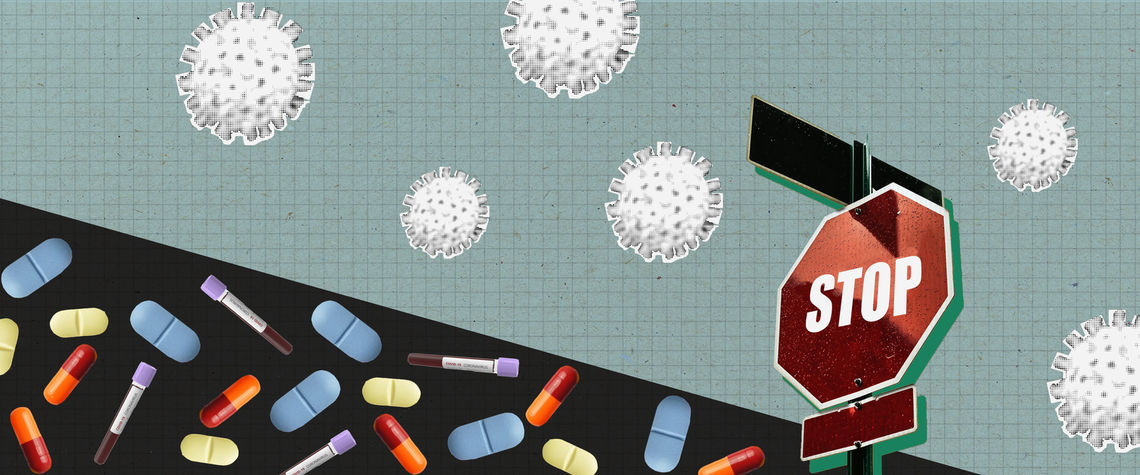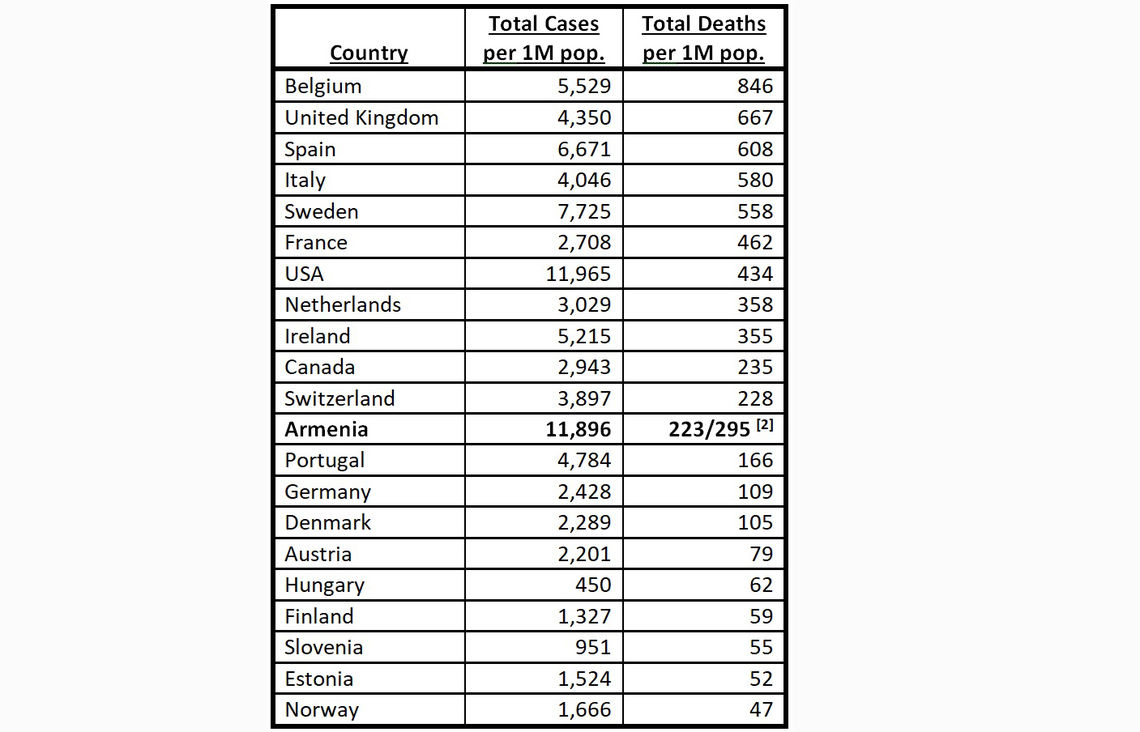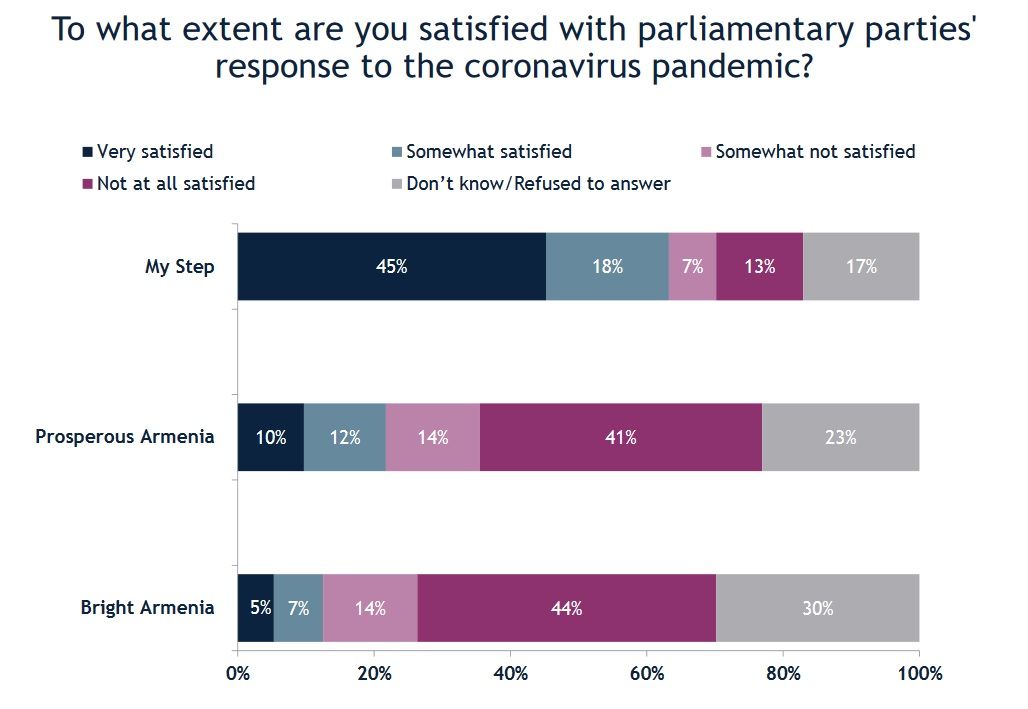
EVN Report has provided extensive coverage of the COVID-19 situation in Armenia over the last few months, including daily briefings and a comprehensive overview of the government response.
The 2020 Caucasus Barometer survey, conducted in late February and early March, showed that trust in the executive government remained high, more than a year after the landslide 2018 election. By the time the results of that survey were released, however, it was not clear if the fallout from the COVID-19 pandemic had eroded that relationship between the Pashinyan administration and the country’s electorate.
According to official government statistics, Armenia was harder hit by the novel coronavirus, in absolute numbers, than its South Caucasus neighbors of Georgia and Azerbaijan, despite having the smallest population among the three. [1]
Table 1. COVID-19 Statistics in the South Caucasus

Source: Retrieved: July 21, 2020.

Source: Retrieved: July 21, 2020.

Source: International Republican Institute. Used with permission.
The poll shows that the pandemic has not impacted Prime Minister Nikol Pashinyan’s personal popularity, which remains very strong. 84% of respondents indicated they held a “very favorable” or “somewhat favorable” opinion of him. His daily Facebook video updates were listed as the most effective medium for communicating government decisions to the public. Though a photo of him around a maskless, crowded table in Artsakh made the rounds on social media back in May, that incident appears not to have impacted public opinion.
Even if Armenians are generally satisfied with the government response, it does not mean they are dismissing the gravity of the situation. 85% were “very concerned” or “somewhat concerned” that they or an acquaintance will become infected with COVID-19. An even higher 90% were concerned about the impact of the pandemic on the country’s economy. With restrictions on non-citizen tourists entering the country remaining in force at least into August, the normally-busy summer tourism season (an important source of foreign currency inflows) has suffered a palpable setback. One hopeful indicator is that domestic travel may have picked up to offset the blow. According to unscientific, anecdotal evidence (not part of the IRI survey), many resorts in the country are still selling out their rooms as Armenians look to escape the summer heat and take some time to de-stress in a stressful, uncertain time.

